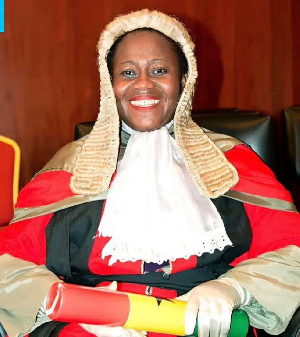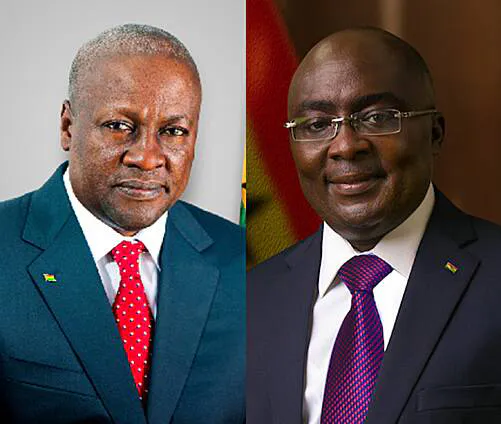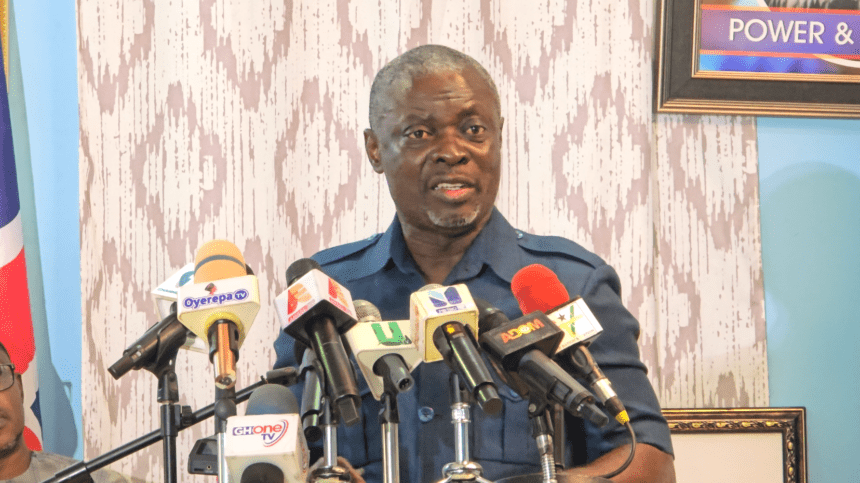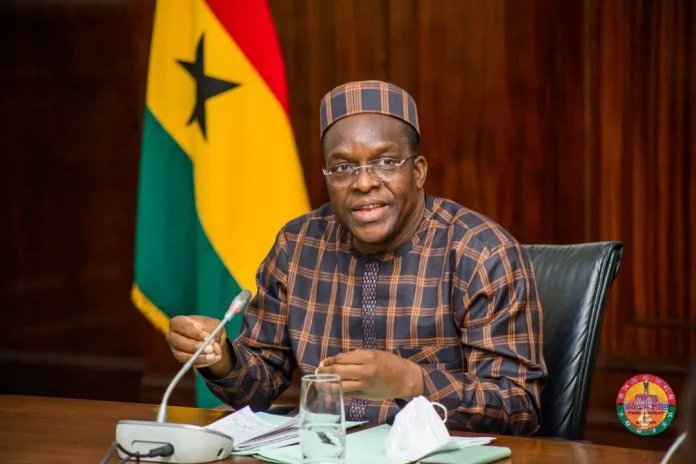Politics
Justice Torkornoo’s appointment and future of Ghana’s Judiciary
Published
1 year agoon
By
Melody 911FM
Ghana has welcomed its 15th head of the third arm of government, coincidentally the third woman to hold that position, and the third Chief Justice of the Judiciary appointed by President Akufo-Addo. Justice Araba A. S. C. Torkornoo has been a part of the Judiciary since she was appointed a High Court judge in 2004.
Her ascent through the ranks has occurred during the tenure of the two main political parties in Ghana. She was appointed to the High Court in 2004 under the New Patriotic Party (NPP), elevated to the Court of Appeal in 2012 under the National Democratic Congress (NDC), and finally joined the Supreme Court in 2019 under the NPP.
In this article, I will assess the appointment and vetting process of Justice Torkornoo and explore its significance for the future of Ghana’s democracy.
Clarity of procedure
Article 144(1) of the 1992 Constitution outlines the procedure for appointing the Chief Justice. It states, “The Chief Justice shall be appointed by the President acting in consultation with the Council of State and with the approval of Parliament.”
This provision involves three key actors: the President, the Council of State, and Parliament. This process has been recognized as one of the checks and balances within Ghana’s Constitution, ensuring accountability and preventing the abuse of power.
In the case of Justice Torkornoo, the nomination, referral to the Council of State by the President, affirmation by the Council of State, request for approval by Parliament, and subsequent vetting by the legislature, were carried out in a manner that vividly operationalized the procedure outlined in Article 144(1).
The experience gained over the past 30 years of the Fourth Republic has provided a better understanding of the intentions of the framers of the Constitution. Judgments from the Supreme Court, such as GBA v Attorney-General, have settled debates on the legal implications of the roles played by the various actors in such appointments.
Focus of vetting
It is widely known that political actors within the National Democratic Congress (NDC) and the New Patriotic Party (NPP) differ in their opinions on the performance and independence of the Judiciary. Therefore, it was not surprising to observe that both the Majority and the Minority sides of the Appointments Committee used the vetting of the Chief Justice nominee to emphasize what they considered important for their respective sides.
The NDC side of the Committee, which has raised numerous concerns about judgments and rulings from the apex court, made it clear that they were setting out to evaluate Justice Torkornoo’s rulings and judgments throughout her time on the Supreme Court. This perspective somewhat influenced the majority of questions raised by the Minority, concerning issues such as contempt of court, citizenship, and the independence of the judiciary.
On the other hand, the NPP side, believing that Justice Torkornoo had already undergone a thorough vetting when she appeared earlier before the Committee to be scrutinized for the job of Justice of the Supreme Court, emphasized that the proceedings did not need to deviate from previous procedures. Thus, they placed a firm emphasis on the administration of justice as a whole.
Despite the different interests that shaped the approaches used by the sides, the committee ultimately succeeded in producing a balanced assessment of Justice Torkornoo’s qualification for the topmost job in the judiciary – Chief Justice of the Republic of Ghana.
In my opinion, the focus of both sides aligns with the role of the Chief Justice as outlined in Article 125(4) of the Constitution, which states that the Chief Justice shall be responsible for the administration of justice and supervision of the Judiciary, subject to the Constitution.
The office entails two broad roles: the administration of justice and the supervision of the Judiciary. The majority’s stance facilitated a comprehensive examination of the nominee’s views on crucial matters such as the e-justice system, accessibility of court buildings for persons with disabilities, and delays in judicial proceedings.
According to Article 128(3) of the 1992 Constitution, the Chief Justice presides over sittings at the Supreme Court. In her absence, the most senior justices of the Supreme Court, as constituted, shall preside. Therefore, it is valuable to inquire about the nominee’s views on some of the cases she has adjudicated upon and the many decisions made by the apex court.
In the following paragraphs, I will attempt to evaluate whether some of the issues raised during the vetting were appropriately addressed or if they were better suited for a different forum.
Contempt of court
Justice Torkornoo faced the Appointments Committee shortly after the Supreme Court issued a quasi-criminal summons for Prof. Kpessah-Whyte, who was later convicted, cautioned, and discharged for making disparaging comments amounting to contempt of the Supreme Court. Naturally, it was expected that the issue would make the list of questions targeting the nominee.
However, I believe it was a missed opportunity to obtain clear commitments from the Chief Justice regarding streamlining contempt laws, which some argue lends itself to judicial abuse. In my respectful view, the conversation during the vetting process was somewhat incomprehensive, as it primarily focused on the appropriateness of the use of the power to cite a person for contempt in an environment of free speech.
As anticipated, the nominee took the opportunity to explain the essence of contempt of court provisions, emphasizing their importance. However, the central question surrounding contempt at present is whether it should be regulated by legislation. The United Kingdom, which influenced the superstructure of Ghana’s legal system, has an Act of Parliament that governs the use of the power to cite a person for contempt.
I align with those who argue that the power to punish for contempt of court, as provided for in Article 19(12) of the Constitution and other relevant statutes, is broad and grants too much discretion to the court. The superior courts of judicature per provisions of Article 126(2) of the 1992 Constitution, shall have the power to commit for contempt to themselves. This same power has been provided for in the Courts Act 459 under Section 36. While the essence of the powers conferred on the superior courts in the provisions above is to prevent obstruction of the fair administration of justice, prevent publications that scandalize the court, etc., its apparent limitless scope may be subjected to abuse.
As a young journalist who reports from the courts of Ghana, I am always cautious about the issue of contempt. The definition of contempt and the appropriate punishment are subjects that remain somewhat unclear. For instance, the Constitution makes it lawful for the Supreme Court to commit one for contempt even if the act or omission leading to contempt has not been defined in line with principles of legality and certainty in criminal law. Additionally, how individuals are invited to answer charges of contempt can create the impression of guilt before any plea is taken. This raises questions about the principle that an accused person is innocent until proven guilty. It is not surprising that almost all contemnors seek clemency as opposed to asserting their innocence.
I believe that if Parliament is inclined to do so, they can take the initiative to regulate the power to commit for contempt in our jurisprudence if the Judiciary is reluctant to write the rules. However, the potential impact of such legislation should be carefully considered, given the provisions of Article 19(12) which make contempt an exception to Article 19(11), which mandates that all criminal offences should be defined in written law with stated punishments. There is also the concern that contempt is an inherent power of the court, which it may exercise even in the presence of a statute limiting its use. Thus, it becomes apparent that the issue of contempt is not a simple matter. In the meantime, it is arguable that it would not harm observers of the legal space who seek to comment on judgments to do so with civility and respect for the sanctity of the courts.
JAMES GYAKYE QUAYSON AND THE SUPREME COURT
The Minority in Parliament argued that they could not form an opinion on the suitability of Justice Torkornoo for the position of Chief Justice unless they examined the reasoning of the Supreme Court regarding its unanimous decision directing Parliament to expunge James Gyakye Quayson’s name from the records of the House. This decision ultimately led to the declaration of the Assin North seat vacant, prompting a by-election scheduled for June 27.
While I had no fundamental issue with the Minority’s stance, I believed that the two sides in Parliament should not use the approval process as a platform for fighting their respective battles. It is understandable, however, that the Minority is displeased by the decision of the Supreme Court in the Quayson case as it affected the numerical strength of the group in the House momentarily.
However, it must be emphasized that this matter was decided by a competent court with provisions for review if necessary. Questioning the nominee on the Quayson case does not concern me as much as the perception that her approval or rejection hinged on the reasoning of the court in that case.
For instance, Mahama Ayariga, the MP for Bawku Central, revealed after the public hearing that the Minority almost abstained from the vetting due to the unavailability of the Supreme Court’s written judgment at the time the nominee faced the Committee. However, as Justice Torkornoo pointed out, she has delivered hundreds of judgments, and placing excessive relevance on one specific case as part of the process of assessing her for the job may not be fair.
It is refreshing that the minority after considering the judgment decided to unanimously support her bid after considering the judgment despite their disagreement with the reasoning of the court. It is in respects like this for each arm of government that we can develop the democracy we enjoy.
BIRTH CERTIFICATE AND CITIZENSHIP
Citizenship is inherently a legal question. In the case of Ghana, place of birth is almost irrelevant unless linked to Ghanaian lineage. Justice Torkornoo clearly explained this principle when discussing the decisions that ruled out birth certificates as proof of citizenship.
While I appreciate the view that a birth certificate primarily provides information about the bearer’s name and place of birth, the fact that the document also contains information that verifies the bearer’s lineage should not be overlooked. This information helps to determine the nationality of the child’s parents, and—unless disproven by contrary evidence—prima facie declares the child’s nationality. It is intriguing, therefore, that a birth certificate is deemed insufficient for proving the nationality of who is and who is not a Ghanaian. There is an urgent need to reevaluate the proof of citizenship, separate from identification for voter registration purposes, which was the central issue in the cases that prompted these pronouncements.
ACCESS TO LAW SCHOOL
Regarding concerns about what some have called the alarming number of Ghana Law School students failing their final exams yearly, the Chief Justice suggested that the difficulty arises from the sheer number of students who double as full-time or part-time workers. I find this to be an interesting hypothesis that could be better understood with a further breakdown of the figures. It would be helpful to determine the number of “working students” who take the exams compared to those who are full-time students, and to analyze the success rate within each category.
From this perspective, it may be inferred that the Chief Justice nominee was not inclined towards the alternative view of decentralizing the teaching of the professional law course. However, it can be argued that the nominee appeared interested in increasing enrollment at the Ghana School of Law, if possible. Achieving this would likely require appropriate investment in critical legal training infrastructure.
President Akufo-Addo in 2021 cut the sod for the law village, which, when completed, is expected to increase enrollment in the Ghana School of Law. There is little to show for the work so far, and it is my hope that Justice Torkornoo will make it a point to see to its completion.
Her Ladyship also alluded to the fact that the School has seen an increase in enrollment recently, in an attempt to justify the current status quo. The creation of satellite campuses has been said to be the reason for this increase.
I hope that, under her leadership, more satellite campuses will be commissioned while the government works to complete the law village.
ADMINISTRATION OF JUSTICE
Questions during the hearing also addressed the need to reduce delays in the delivery of justice and increase efficiency within the Judiciary. The nominee, who previously served as Vice President during the commencement of the E-Justice System and currently serves as its President, expressed confidence that these issues would be addressed when the system becomes fully operational. I agree with this position and hope that, having been approved by Parliament and appointed by the President, the Chief Justice will continue to prioritize these matters.
In conclusion, the vetting process for Justice Torkornoo encompassed crucial aspects of her qualifications, views, and the challenges facing the Judiciary. It provided valuable insights into her role as Chief Justice and the implications of her appointment for Ghana’s evolving democracy. Discussions emphasized the need to reduce delays in justice delivery and enhance efficiency within the Judiciary. Justice Torkornoo’s experience and commitment to addressing these issues instil confidence. Moving forward, it is vital for Parliament to effectively monitor the promises made by appointees. With Justice Torkornoo’s qualifications, insights gained from the vetting process, and a strong commitment to justice, her appointment holds promise for Ghana’s democracy and the rule of law. Transparency, efficiency, and maintaining high standards are crucial for fostering trust and confidence among the people of Ghana.
You may like
Politics
Bawumia- “Mahama’s Economic Record Bad”
Published
2 weeks agoon
November 11, 2024By
Melody 911FM
The presidential candidate of the New Patriotic Party (NPP), Vice President Dr. Mahamudu Bawumia, has openly criticised former President John Dramani Mahama’s economic management, describing it as the worst among Ghana’s Fourth Republic leaders.
According to him, during Mr. Mahama’s tenure, the economy experienced substantial setbacks across multiple sectors, marked by soaring inflation, sluggish growth, and increasing unemployment.
Speaking at the Ghana CEO Presidential Gala in Accra last Thursday, Dr. Bawumia asserted that his criticism was based on hard economic data rather than partisan views.
He contrasted this with what he described as Ghana’s improved economic trajectory under NPP leadership, asserting that Mr. Mahama’s tenure represented a “decisive failure in economic stewardship.”
Dr. Bawumia stressed that his analysis was intended to highlight the need for sound economic management and that his remarks were meant to shed light on measurable outcomes of Mr. Mahama’s policies, which he said weakened the country’s economic resilience.
The NPP presidential candidate expressed his commitment to building on the progress achieved under the Akufo-Addo administration.
He underscored the importance of data-driven policies and positioned himself as the candidate most capable of navigating Ghana through future economic challenges.
“Despite the impact of global economic challenges, it might surprise some, including the former president himself, that his administration ranks the lowest in economic performance among all Fourth Republic leaders,” Dr. Bawumia reiterated.
He continued, “Yet, he speaks about our economic performance as though his was superior.”
Business Development
Dr. Bawumia also used the opportunity to reaffirm his commitment to strengthening business development in the country, stressing that resilient businesses are foundational to a thriving economy.
He praised the role of the private sector in creating jobs, driving innovation, and fostering sustainable growth.
The NPP flagbearer detailed policies introduced by the current administration to support Ghanaian businesses, including initiatives aimed at enhancing entrepreneurship, expanding access to credit, and advancing digitalisation.
According to Dr. Bawumia, these steps are critical to building a competitive, innovative, and resilient business sector.
He promised that, if elected, he would continue to prioritise business growth in order to ensure the Ghanaian economy remains vibrant and competitive on a global scale.
“Ladies and gentlemen, as you may know, Bawumia means business! From banking to vice presidency, my commitment to business development has been unwavering.
“Strong businesses lead to a strong economy—show me a prosperous nation, and I’ll show you resilient businesses behind it,” he concluded.
Politics
NPP, NDC have mismanaged Ghana – GUM
Published
2 weeks agoon
November 11, 2024By
Melody 911FM
The Ghana Union Movement (GUM) has criticised the New Patriotic Party (NPP), and the National Democratic Congress (NDC) for “mismanaging the country” and supervising the sale of state-owned businesses bequeathed by previous governments.
The Party said the sale of state-owned factories to private individuals and failure to revive defunct state enterprises largely accounted for the growing youth employment situation that had bedeviled the country.
These were contained in a news release issued by the Party’s founder and leader, Reverend Christian Kwabena Andrews, and shared with the Ghana News Agency.
The GUM urged the youth to “be concerned about their future” and vote to break the duopoly enjoyed by the NPP and NDC for decades.
“Embracing both NDC and NPP as a party is just endorsement of the continuity of the Ghanaian predicament. Ghanaian youth must rise to vote massively against these parties, because they were the source of our problems today,” it said.
The GUM said the slow pace of development since the commencement of the Fourth Republic in 1992 justified the call for the “total overhaul” of the 1992 Constitution “considering the mess caused by both NDC and NPP government respectively.”
The Party proposed the adoption of what it termed as “Hybrid African Democracy” which it said was suitable governance model for the country.
“The current model was copied line, hook, and sinker from the West, where they have established and structured institutions to make their democracy work,” it said.
The GUM also called for downsizing of Parliament to reduce the cost of running the business of the House.
The Party said that salaries and benefits awarded to 275 Members of Parliament as well as Article 75 Office Holders “drain the national purse than building it.”
“We urge the public to vote for the Ghana Union Movement for a reliable, better Ghana with the Ghanaian youth as its core,” the Party said.
The GUM caused a stir when it placed third in the 2020 presidential election, beating the traditional Convention People’s Party, People’s National Convention, and the Progressive People’s Party.
The party garnered 105,548 votes, representing 0.805 per cent of the total ballots cast.
Rev. Andrews has indicated that the Party would build on its achievements in 2020 and affect the 2024 presidential and parliamentary elections.
The GUM has promised to establish factories in every region and operate a free port to boost economic activities and improve the living conditions of the people.

In a significant development, Ghana’s Parliament Speaker, Alban Sumana Kingsford Bagbin is set to address the media on Wednesday, November 6, 2024.
The press conference, scheduled for 2:00 pm at the Justice D.F. Annan Auditorium, Job 600, Parliament House, aims to tackle critical issues affecting Ghana’s parliamentary democracy.
Recent Developments
Alban Bagbin’s address comes amidst significant political developments in Ghana.
As Speaker, he has played a pivotal role in shaping the country’s legislative agenda.
His leadership has been marked by efforts to strengthen parliamentary oversight and promote transparency.
The engagement seeks to provide a platform for the media to discuss pressing concerns impacting Ghana’s democratic growth.
The Speaker, Alban Bagbin, is expected to shed light on recent events that have shaped the country’s political landscape.

Bawumia- “Mahama’s Economic Record Bad”

Peter Okoye reacts to alleged song ownership by twin brother
















